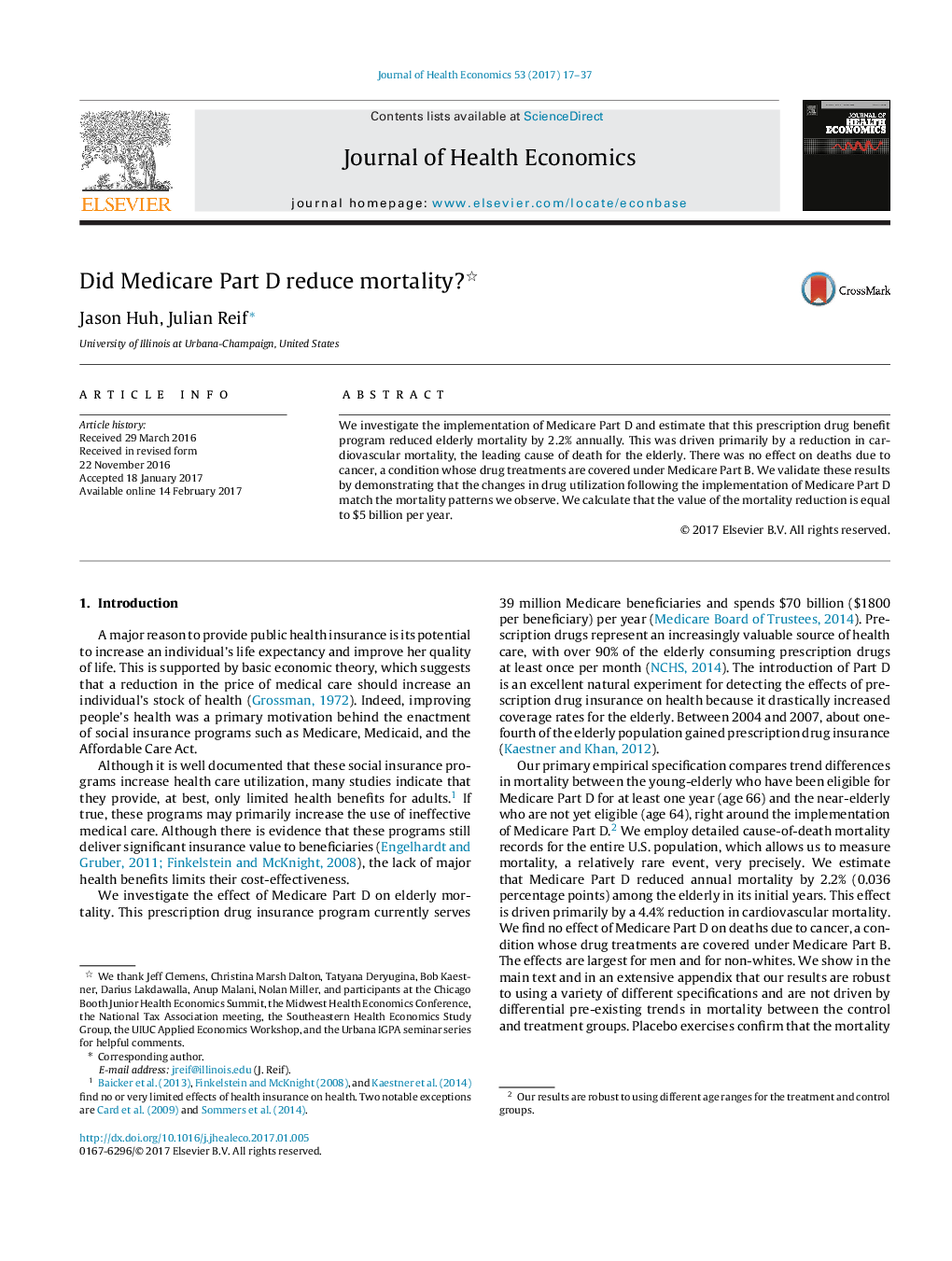| Article ID | Journal | Published Year | Pages | File Type |
|---|---|---|---|---|
| 5100772 | Journal of Health Economics | 2017 | 21 Pages |
Abstract
We investigate the implementation of Medicare Part D and estimate that this prescription drug benefit program reduced elderly mortality by 2.2% annually. This was driven primarily by a reduction in cardiovascular mortality, the leading cause of death for the elderly. There was no effect on deaths due to cancer, a condition whose drug treatments are covered under Medicare Part B. We validate these results by demonstrating that the changes in drug utilization following the implementation of Medicare Part D match the mortality patterns we observe. We calculate that the value of the mortality reduction is equal to $5 billion per year.
Related Topics
Health Sciences
Medicine and Dentistry
Public Health and Health Policy
Authors
Jason Huh, Julian Reif,
